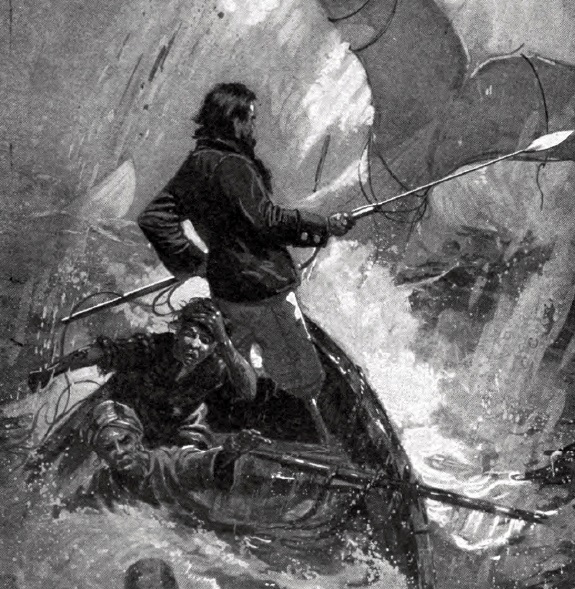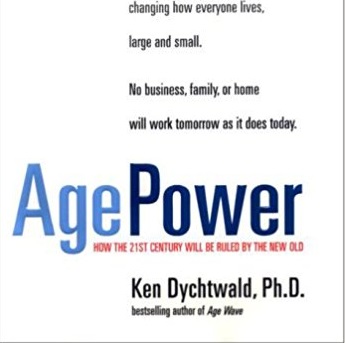
by Richard Subber | Apr 26, 2025 | Book reviews, Books, Joys of reading, Language
Romantic historical fiction doesn’t get any better…
Consider the art of Rafael Sabatini (1875-1950)
Novelist extraordinaire
Sabatini was a more popular writer during his lifetime, when his trademark works of romantic, principled historical fiction were more accessible and more acceptable. If you have not read Scaramouche, you have deprived yourself. You will feel yourself to be a better, more lavishly happy person after you read it for the first time. There is the occasional swordplay in his novels, however, I warn you, most of the time his characters do nothing but talk. I think that’s all you need for a book review.
My interest here is to share a sample of his ingenious and engaging prose. This is from Saint Martin’s Summer...in fact, these are the first two paragraphs of the first chapter:
“My Lord of Tressan, His Majesty’s Seneschal of Dauphiny, sat at his ease, his purple doublet all undone, to yield greater freedom to his vast bulk, a yellow silken undergarment visible through the gap, as is visible the flesh of some fruit that, swollen with over-ripeness, has burst its skin.
“His wig—imposed upon him by necessity, not fashion—lay on the table amid a confusion of dusty papers, and on his little fat nose, round and red as a cherry at its end, rested the bridge of his horn-rimmed spectacles. His bald head—so bald and shining that it conveyed an unpleasant sense of nakedness, suggesting that its uncovering had been an act of indelicacy on the owner’s part—rested on the back of his great chair, and hid from sight the gaudy escutcheon wrought upon the crimson leather. His eyes were closed, his mouth open, and whether from that mouth or from his nose—or, perhaps, conflicting for issue between both—there came a snorting, rumbling sound to proclaim that my Lord the Seneschal was hard at work upon the King’s business.”
Maybe that’s all you need for a book review.
Eat your heart out, John Grisham.
* * * * * *
Book review. Copyright © Richard Carl Subber 2025 All rights reserved.
Book review: American Colonies
So many and so much
came before the Pilgrims
by Alan Taylor
–
My first name was rain: A dreamery of poems with 53 free verse and haiku poems,
and the rest of my poetry books are for sale on Amazon (paperback and Kindle)
and free in Kindle Unlimited, search Amazon for “Richard Carl Subber”
* * * * * *

by Richard Subber | Apr 24, 2025 | Book reviews, Books, Human Nature, Reflections
it’s not the last obscenity…
Book review:
Aging: An Apprenticeship
Nan Narboe, ed.
Portland, OR: Red Notebook Press, 2018
286 pages
Narboe creates a handy and wide-ranging collection of reflections on the art, science, and humanity of the aging process. More than 50 authors tell it like they think it is, for folks nearing the increasingly ordinary age of 50, and for folks in their 50s, 60s, 70s , 80s, and 90s and beyond. If you’re not in one of those groups, you will be sooner than you think.
Of course, the explicit premise of most of the authors in Aging: An Apprenticeship is that life can be good (or not), aging happens to everyone, and dying is the end game.
Gloria Steinem’s contribution is on point, completely tolerable, and instructive. She says:
“After all, we are communal creatures who must mirror each other to know who we are. Every living thing ages and dies, yet humans seem to be the only species that thinks about aging and thinks about dying. Surely, we are meant to use this ability, especially in a country that suffers so much from concealing aging and dying as if they were the last obscenities.”
For Aging: An Apprenticeship, Narboe collects essays that range from whimsical to doggone serious. Each author offers a very personal argument that aging and dying are 100% natural.
* * * * * *
Book review. Copyright © Richard Carl Subber 2025 All rights reserved.
Book review:
Founding Mothers:
The Women Who Raised Our Nation
by Cokie Roberts
The Revolutionary War,
as fought by women…
–
Above all: Poems of dawn and more with 73 free verse poems,
and the rest of my poetry books are for sale on Amazon (paperback and Kindle)
and free in Kindle Unlimited, search Amazon for “Richard Carl Subber”
* * * * * *

by Richard Subber | Apr 20, 2025 | American history, Book reviews, Books, History, Revolutionary War
King George wanted to win the war…
the other guys, not so much…
Book review:
Iron Tears:
America’s Battle for Freedom,
Britain’s Quagmire: 1775:1783
Stanley Weintraub (1929-2019)
New York: Free Press, 2005
375 pages
For some time I have indulged my suspicion that the British never really tried very hard to win the Revolutionary War.
Stanley Weintraub’s Iron Tears isn’t the first book that has reinforced my understanding of this most iconic event in American history. If you’re interested, try Nick Bunker’s An Empire on the Edge or Andrew Jackson O’Shaughnessy’s An Empire Divided.
Weintraub offers a solidly researched and richly anecdotal account of the military details and the political wrangling that prolonged the war for several years until the British ministers and politicians finally admitted to themselves that they couldn’t win the war.
King George III was fatuously optimistic and persistently unrealistic—to the bitter end—about the prospects for winning a war that he desperately identified with his own persona and his royal stature.
Weintraub makes it irrefutably clear that at no time during the Revolutionary War did the British send enough men and ships to win in North America, that is, to put down the rebellion and re-establish full constitutional Parliamentary control of the 13 colonies. Hint: the British “sugar island” colonies in the Caribbean were more important, and the British never stopped looking over their shoulders at prospective and real war with France, Spain, and other countries.
On October 18, 1781, General Washington accepted the capitulation of the army of General Cornwallis at Yorktown. On November 25, an official dispatch with the bad news finally reached Lord North, the British prime minister, at Downing Street. It is reported that he exclaimed “Oh God! It is all over!”
Quite possibly he was overcome with grief and relief.
* * * * * *
Book review. Copyright © Richard Carl Subber 2025 All rights reserved.
Book review: A Cold Welcome
The culprit was global cooling,
500 years ago…
by Sam White
–
Above all: Poems of dawn and more with 73 free verse poems,
and the rest of my poetry books are for sale on Amazon (paperback and Kindle)
and free in Kindle Unlimited, search Amazon for “Richard Carl Subber”
* * * * * *

by Richard Subber | Apr 12, 2025 | Book reviews, Books, Poetry, Reviews of other poets
Say “repine” a couple times…
I read lots of poetry—colonial, classic American, modern—and I don’t find much that I like.
I’m a bit puzzled by this. I think hard about what I like and dislike about poetry, especially my own poetry. I confess my sincere failure to discern anything meaningful in the kind of poetry I classify as “obscure,” you know, the wayward romp through disconnected words and disjoint images, and the wanton disregard of verb tense/pronoun antecedents/subject and verb relationships/sentence structure—I think you may have seen this kind of stuff:
“Sky falls cloud sheep bray at starry islands in my hoping
are them my lost love I step around the dog poo….”
I just rapped that out. It doesn’t make me proud.
I’m trying to get to the point:
I’ve read a bit of Henry Wadsworth Longfellow (1807-1882). Longfellow was a lyric poet who tried his hand at free verse, although much of his work is constrained to the often stultifying shackle of line after line and page after page of rhyme. Longfellow wrote at length. I confess I can’t make myself keep turning the pages to read “Evangeline” and “The Song of Hiawatha.” I do understand that this fashion of poetry was written and enjoyed before the successive advents of radio, TV, Sony Walkman, the internet, and social media. I guess reading a poem for an hour or so was more doable in the 19th century.
Longfellow does offer something to me in his more bite-size poetry. He was a capable wordsmith and he dreamed out images and insights and perspectives that appeal to me, and even nudge my sometime muse to wakefulness.
In “Snow-Flakes” he placidly described a snowfall:
“Out of the bosom of the Air,
…The troubled sky reveals
The grief it feels.
This is the poem of the air…”
In “The Rainy Day” he said something we all know:
“…Be still, sad heart! and cease repining;
Behind the clouds is the sun still shining;
Thy fate is the common fate of all,
Into each life some rain must fall,
Some days must be dark and dreary.”
Thus, in Longfellow, something of poetry.
Admit it, we don’t use “repine” often enough in our casual conversations.
* * * * * *
Book review. Copyright © Richard Carl Subber 2025 All rights reserved.
Book review: The Financier
Theodore Dreiser’s villain…
–
Seeing far: Selected poems with 47 free verse and haiku poems,
and the rest of my poetry books are for sale on Amazon (paperback and Kindle)
and free in Kindle Unlimited, search Amazon for “Richard Carl Subber”
* * * * * *

by Richard Subber | Mar 29, 2025 | Book reviews, Books, Books Commentary, Joys of reading, Language, Poetry
Moby-Dick and stuff….
I know whale tales aren’t for everyone.
If you’re still with me, you might be interested to know that Herman Melville’s iconic whale story was published 174 years ago (titled: “The Whale”) in London, and then, a month later, in New York.
The original American title is Moby-Dick; or, The Whale. Melville actually went to sea as a crewman on a whaling vessel, and based his novel in part on a real sperm whale named Mocha Dick, known to South Pacific sailors in the 1840s.
Early in his career Melville was briefly acclaimed for some of his South Pacific stories, such as Typee, but he was obscure during the last 30 years of his life. He earned only $1,200 or so from the sale of about 3,200 copies of Moby-Dick, which was out of print when he died in 1891.
A first American edition of the book can easily be secured if you have about $80,000 (free shipping!) to spend.
Melville wrote in a variety of genres—again, not for all tastes. I’m a big fan of Moby-Dick, and I’m also an advocate for Bartleby, the Scrivener: A Story of Wall Street. Nothing of the South Pacific here. The circumstances of this desiccated short story are curious, even eccentric, incredulous. The withered and aloof Bartleby is presented, examined and disdained, until his very dispirited isolation makes him the object of the narrator’s genuine but increasingly troubled caretaking.
Don’t overlook Billy Budd, Sailor. It’s a searing morality play.
You may be surprised to know that Melville also wrote poetry. One critic has somewhat ponderously suggested that Moby-Dick is filled with Melville’s incipient poetry. I certainly believe that a story can contain a poem, but I don’t see anything like that in Moby-Dick.
* * * * * *
Book review. Copyright © Richard Carl Subber 2025 All rights reserved.
The “dime novels” in the Civil War
Think “blood-and-thunder”…
–
In other words: Poems for your eyes and ears with 64 free verse and haiku poems,
and the rest of my poetry books are for sale on Amazon (paperback and Kindle)
and free in Kindle Unlimited, search Amazon for “Richard Carl Subber”
* * * * * *

by Richard Subber | Mar 27, 2025 | Book reviews, Books, Politics
The merry-go-round keeps turning…
Book review:
Age Power:
How the 21st Century Will Be Ruled by the New Old
Ken Dychtwald (b1950)
New York: TarcherPerigee, 2000
288 pages
Dychtwald reviews the continuing retirement of Baby Boomers, and gives his take on the impact of extended life spans for everyone. He covers economics, politics, health care, and workplace issues.
The text is a bit over-written (like most books on current issues). It’s easy to recognize the parts that can be skimmed, that is, the abundant details of the flamingly obvious: the Boomers are going to live much longer than any generation that preceded us, and we’re not ready for the consequences.
Age Power: How the 21st Century Will Be Ruled by the New Old
* * * * * *
Book review. Copyright © Richard Carl Subber 2025 All rights reserved.
–
As with another eye: Poems of exactitude with 55 free verse and haiku poems,
and the rest of my poetry books are for sale on Amazon (paperback and Kindle)
and free in Kindle Unlimited, search Amazon for “Richard Carl Subber”
* * * * * *





